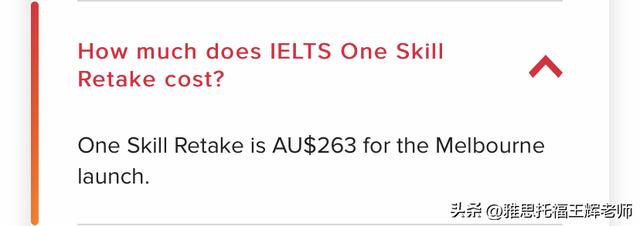32. If you have any questions or requests, please let me know.
如果你有什么问题和请求只管跟我说。

经典句型解析if句型
if作名词时意思是“条件,设想;不确定的情况”,作连词时意思是“(表条件)如果;(表假设)要是,假如;无论何时;虽然,即使;(用于间接疑问)是否;(用于礼貌问询)是否;当,每次;(与情态动词连用)表婉转客气;这不是……,要是……多好;或许不;就算;尽管”。
一. 条件状语从句表示主句动作发生的条件.引导条件状语从句的'连词不多,最常用的引导词为If(如果).切记:引导条件状语从句的If,不能用whether来替换.例句:
(1)Please call me if he is at home.假如他在家,请给我打电话。
(2)You must see a doctor if you are ill.如果你生病了,就必须去看医生。
(3)Don’t go to the beach if it rains.倘若下雨就不要去海滩了。
(4)If it rains tomorrow,I won’t go there with you.如果明天下雨的话,我就不和你一起去那儿了。
(5)Don't play computer games if you don't finish your homework.
如果你没有完成作业,就不要玩电脑游戏。
(6)If it rains(从句) ,I will stay at home(主句).
=I will stay at home if it rains.
如果下雨,我就呆在家里。
(7)If you drive too fast ,you may have an accident.
=You may have an accident if you drive too fast.
如果你开得太快,你可能会出车祸。
(8)If you go with me, you shall be rewarded. 如果你和我一起去,你会得到奖励的。
(9)If you will be so kind as to help us, we can finish by six.如果你愿意帮助我们,到六点时咱们就能完成了。
二.条件状语从句的时态:
1.主句用一般将来时,条件状语从句用一般现在时表将来.如:例句(4)、(6)
2.当主句含情态动词时,条件状语从句用一般现在时.如:例句(2)、(7)、(9)
3.当主句为祈使句,条件状语从句用一般现在时.如:例句(1)和 (3)、(5)
三.正确区分If 引导的条件状语从句和If 引导的宾语从句
在宾语从句中If为“是否”,如表示“将来”时,则用将来时态,宾语从句一般位于主句之后;而在条件状语从句中If的意思为“如果”,主句用一般将来时,从句用一般现在时表将来,且从句位置比较灵活,可位于主句之后也可位于主句之前.请比较:
If you keep on working hard at English,you can learn it well.
如果你继续努力学习英语,你就能够学好它.(条件状语从句)
My little brother wants to know if my father take him to the zoo on Sunday.
我的小弟弟想知道星期天我父亲是否将带他去动物园.(宾语从句)
当if后面接什么时态都可以时,if为“是否”的意思,句子为宾语从句.:
He asked if I had left with you, and I said no.
他问我是否和你一块儿离开的,我说不是。
if可引导名词性从句,作“是否”解,常放在ask, doubt, know, learn, see, wonder等动词后。
四.If 引导条件状语从句与祈使句的转换:
主语为you的条件状语从句还可与“祈使句 and / or 简单句” 句式
互换.例如:If you work harder,you’ll pass the exam.= Work harder,and you’ll pass the exam. 如果你努力学习,你会通过考试的。
If you don’t hurry up,you’ll miss the train.= Hurry up,or you’ll miss the train.
快点,否则你会赶不上火车的。

五.当if后面接一般过去时的动词时,则是一种虚拟语气.:

If I didn’t make that mistake, I wouldn’t have suffered such a failure.
注意虚拟语气 主句和从句都为一般过去式,是对现在的或经常性动作的虚拟:
eg:If I was a bird ,I could fly.(事实我不可能是鸟)
If I didn’t make that mistake, I wouldn’t have suffered such a failure.
If I got up early in the morning, I wouldnt miss the train.
If you were a bird,you could fly.如果你是鸟,你就能飞行了。
I should have talked to mother if I had thought of it.如果当初我想到了,我就和妈妈说了。
If I were to ask him for a loan,would he agree ?如果我向他借钱的话,他能同意吗?
If it should rain tomorrow,the rally would be postponed.要是明天下雨,群众大会就会延期举行。
If I were an architect,I'd redesign this house.如果我是建筑师,我会重新设计这房子。
If it were up there, it would be easier to find.如果它在那儿,就会更容易被找到。
If had anything happened, he would have let me know.如果当初发生了什么事,他会让我知道的。
if引导条件状语从句,从句可为真实条件从句,也可为虚拟条件从句。如为真实条件从句,谓语用陈述语气,表示可能性很大,作“假使”“如果”解,通常用一般现在时代替一般将来时; 如果if从句中用will,表示意愿。从句如为虚拟条件从句,谓语动词要用虚拟语气,表示可能性不大或与过去事实相反,作“要是,假如”解。可指过去的情况,也可指现在和将来的情况。指将来情况时可用were to或should。在现代口语中,一、三人称后常用was代替were。if引导的虚拟条件句中,助动词were,should,had可以移至主语前。






